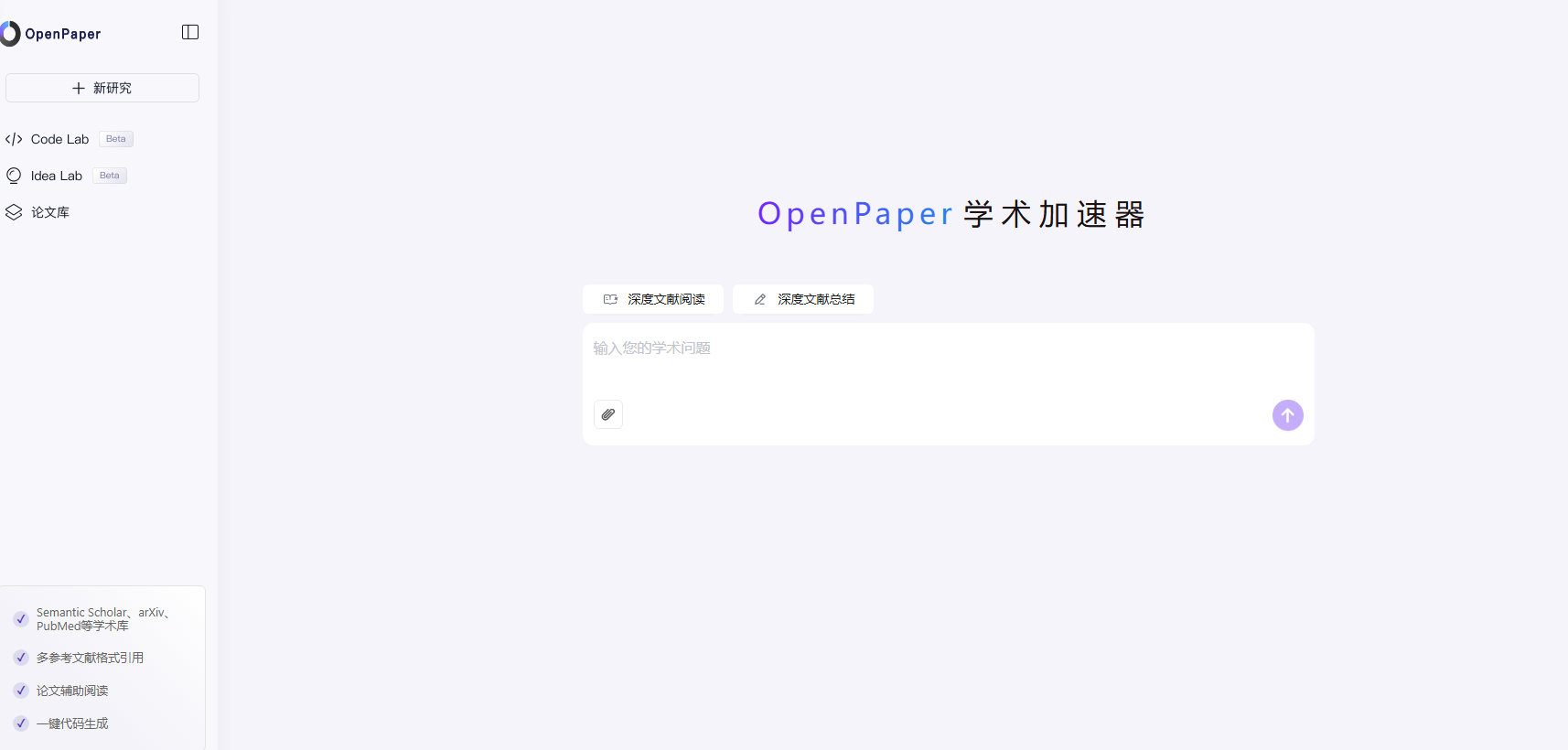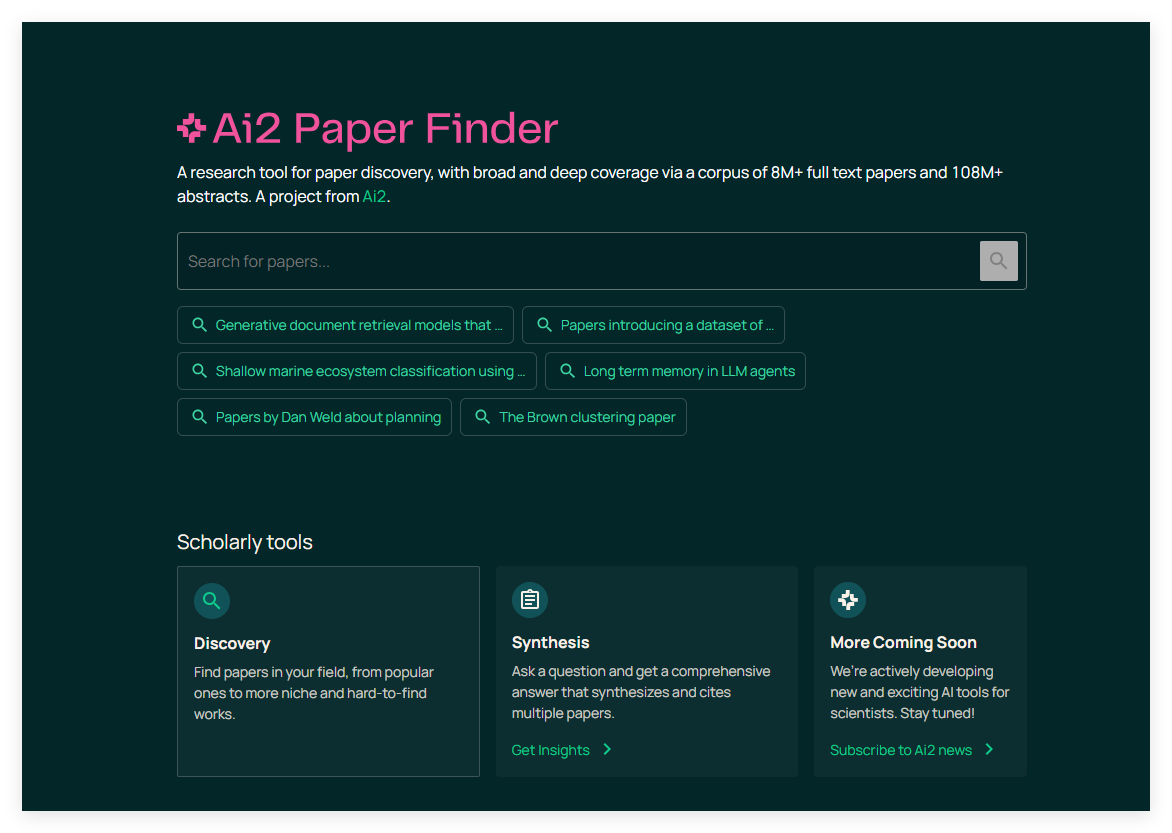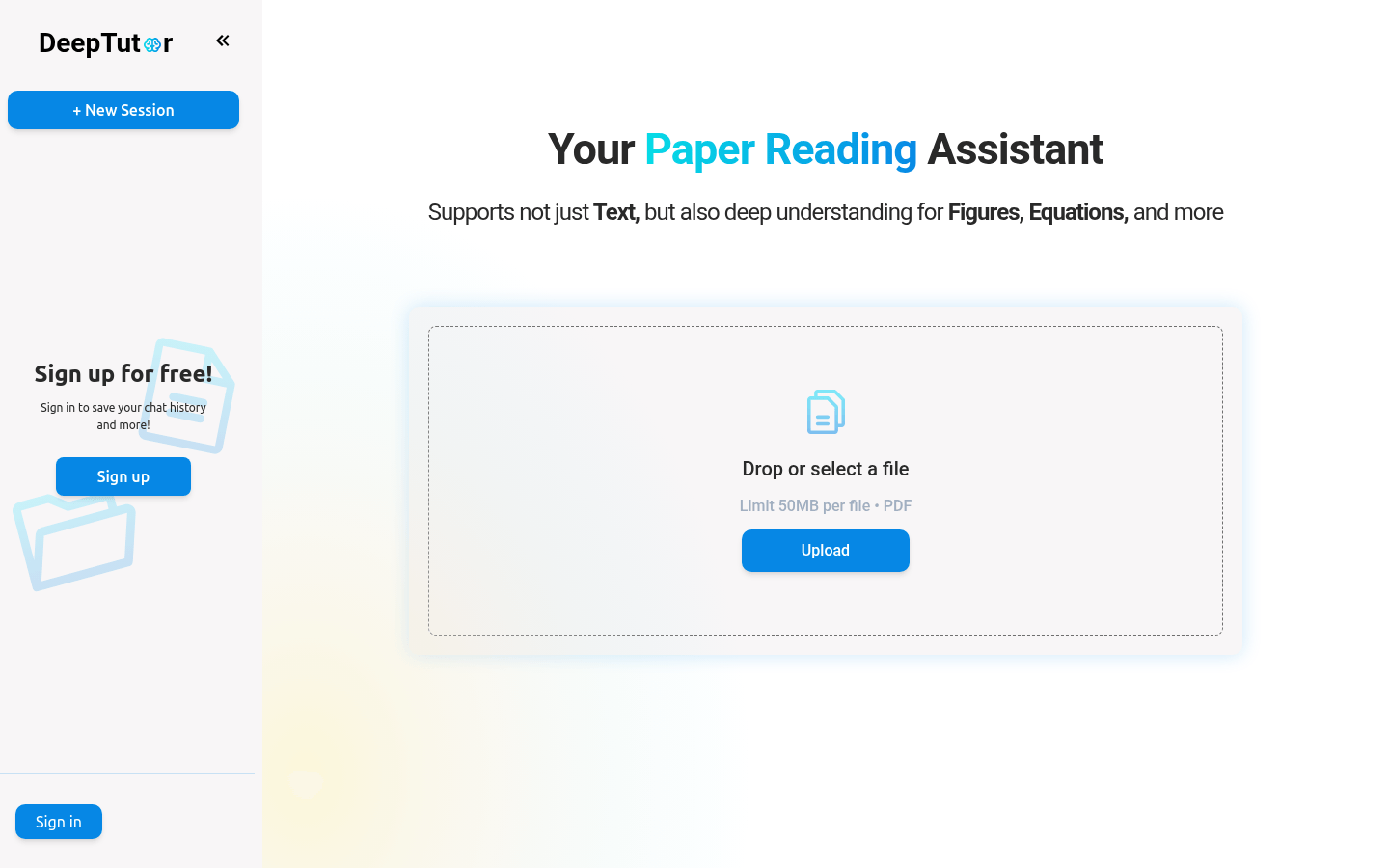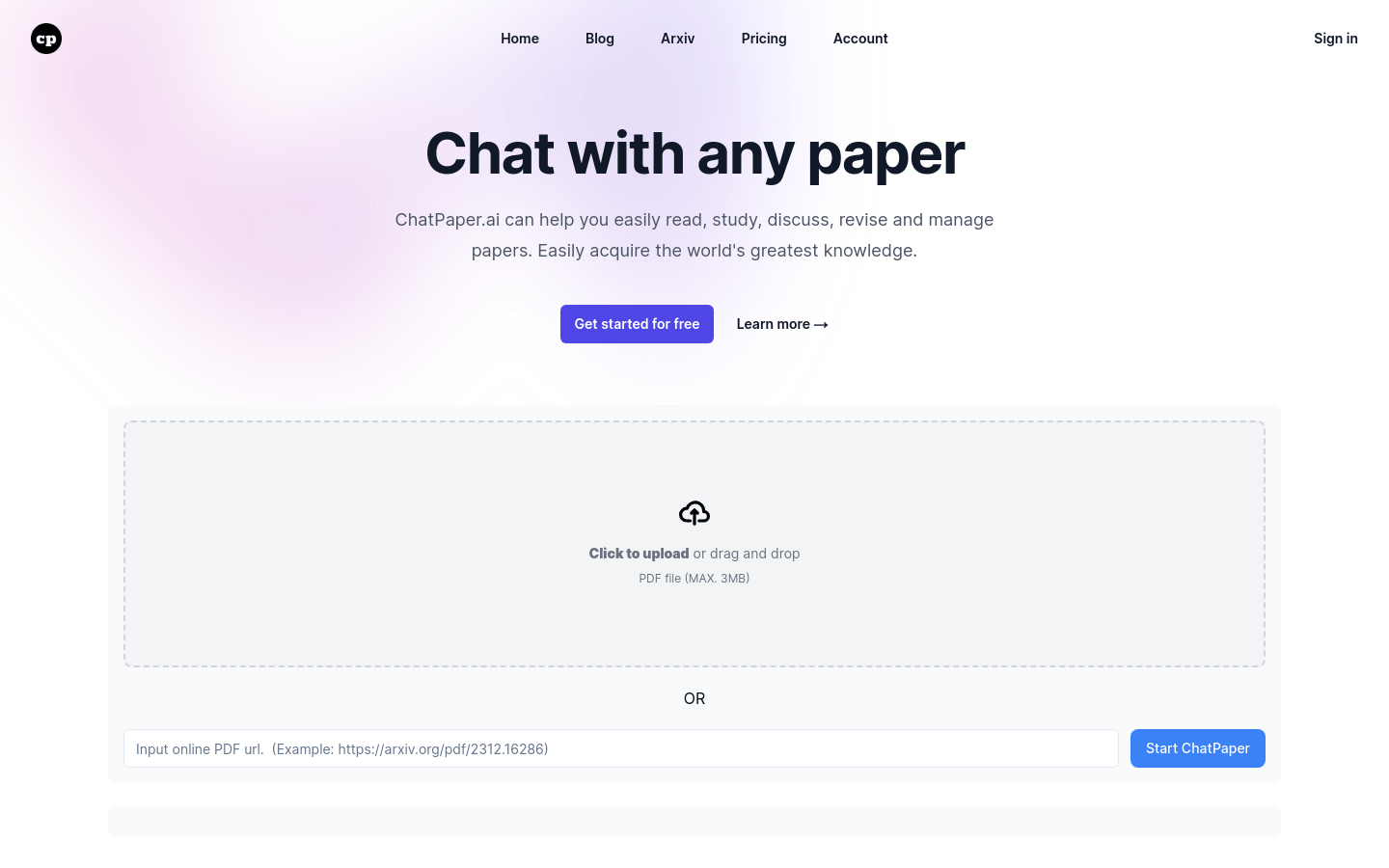arxiv_summarizer
Python tool to automatically extract and summarize arXiv research papers.

Product Details
The product is a Python script that leverages the Gemini API to fetch and summarize research papers from arXiv. It helps researchers, students, and enthusiasts quickly extract key information, saving time from reading lengthy literature. This tool is not only suitable for individual users, but can also automate daily literature searches and improve research efficiency. The product is available free of charge and is easy to install and configure.
Main Features
How to Use
Target Users
This product is suitable for researchers, students and document workers who need to quickly access the core content of research documents. Through the automated document summarization function, they can save time and improve work efficiency.
Examples
A graduate student uses the tool to quickly access the latest research advances in a specific field.
A research team used batch summarization to quickly analyze commonalities and trends across multiple papers.
A teacher uses automated daily extraction to organize emerging and relevant literature into Google Docs.
Quick Access
Visit Website →Categories
Related Recommendations
Discover more similar quality AI tools

OpenPaper Academic Accelerator
OpenPaper Academic Accelerator is a tool designed for academic researchers and students to help users access, cite and summarize academic documents more efficiently. By integrating multiple academic resources, users can quickly obtain the required documents and generate reference formats, which greatly improves research efficiency. The core advantage of this tool lies in its powerful document search function and intelligent reading experience, which is suitable for various academic research needs. At this stage, basic functions are provided free of charge.

AlphaOne
AlphaOne (α1) is a general framework for regulating the thinking progress of large reasoning models (LRMs) at test time. By introducing α moments and dynamically scheduling slow thought transitions, α1 enables flexible regulation of slow-to-fast reasoning. This method unifies and generalizes existing monotonic scaling methods, optimizing reasoning capabilities and computational efficiency. This product is suitable for researchers and developers who need to handle complex reasoning tasks.

Versatile-OCR-Program
The product is a purpose-built OCR system designed to extract structured data from complex educational materials, supporting multilingual text, mathematical formulas, tables and charts, capable of producing high-quality data sets suitable for machine learning training. The system leverages multiple technologies and APIs to provide highly accurate extraction results, making it suitable for use by academic researchers and educators.

Ai2 PaperFinder
Ai2 PaperFinder is an online tool dedicated to helping researchers quickly find the documents they need. The platform brings together more than 8 million full-text papers and 108 million abstracts, with powerful literature search and synthesis capabilities. Through simple keyword searches, users can quickly obtain relevant research, greatly improving scientific research efficiency. The background of this product stems from the urgent need for scientific research documents. The price is free and suitable for use by all types of scientific researchers.

DeepTutor
DeepTutor is an intelligent tool for academic research and learning that uses AI technology to provide users with in-depth document interpretation services. It can not only extract text information, but also understand complex content such as charts and formulas, helping users quickly obtain key information. This product is mainly aimed at students, researchers and professionals, aiming to improve their learning and research efficiency. Currently, DeepTutor offers a free trial, and users can experience its powerful features by uploading files and selecting different generation models.

DeepResearch123
DeepResearch123 is an AI research resource navigation platform that aims to provide researchers, developers and enthusiasts with rich AI research resources, documents and practical cases. The platform covers the latest research results in multiple fields such as machine learning, deep learning and artificial intelligence, helping users quickly understand and master relevant knowledge. Its main advantages are rich resources and clear classification, making it easy for users to find and learn. The platform is aimed at all types of people interested in AI research, and both beginners and professionals can benefit from it. The platform is currently free and open, and users can use all functions without paying.

WebWalker
WebWalker is a multi-agent framework developed by Alibaba Group Tongyi Laboratory for evaluating the performance of large language models (LLMs) in web page traversal tasks. The framework systematically extracts high-quality data through exploration and evaluation paradigms by simulating the way humans browse the web. The main advantage of WebWalker lies in its innovative web page traversal capabilities, which can deeply mine multi-level information, making up for the shortcomings of traditional search engines in dealing with complex problems. This technology is of great significance for improving the performance of language models in open-domain question answering, especially in scenarios that require multi-step information retrieval. The development of WebWalker aims to promote the application and development of language models in the field of information retrieval.

PaSa
PaSa is an advanced academic paper search agent developed by ByteDance. Based on large language model (LLM) technology, it can autonomously call search tools, read papers and filter relevant references to obtain comprehensive and accurate results for complex academic queries. The technique is optimized through reinforcement learning, trained using the synthetic dataset AutoScholarQuery, and performs well on the real-world query dataset RealScholarQuery, significantly outperforming traditional search engines and GPT-based methods. The main advantage of PaSa is its high recall and precision rates, which provide researchers with a more efficient academic search experience.

rStar-Math
rStar-Math is a study that aims to demonstrate that small language models (SLMs) can match or exceed the mathematical reasoning capabilities of OpenAI’s o1 model without relying on higher-level models. The study implements "deep thinking" through Monte Carlo Tree Search (MCTS), in which mathematical policy SLM searches at test time guided by an SLM-based process reward model. rStar-Math introduces three innovative methods to address the challenge of training two SLMs, advancing the mathematical reasoning capabilities of SLMs to the state-of-the-art through 4 rounds of self-evolution and millions of synthetic solutions. The model significantly improves performance on the MATH benchmark and outperforms in the AIME competition.

HuatuoGPT-o1
HuatuoGPT-o1 is a large language model designed for complex medical reasoning, capable of identifying errors, exploring alternative strategies and refining answers. The model advances complex reasoning by leveraging verifiable medical questions and specialized medical validators. The main advantages of HuatuoGPT-o1 include: using validators to guide the search of complex reasoning trajectories to fine-tune large language models; applying reinforcement learning (PPO) based on validator rewards to further improve complex reasoning capabilities. The open source model, data and code of HuatuoGPT-o1 make it of great value in the fields of medical education and research.

OpenScholar_ExpertEval
OpenScholar_ExpertEval is a collection of interfaces and scripts for expert evaluation and data evaluation, designed to support the OpenScholar project. The project synthesizes scientific literature by retrieving enhanced language models and performs meticulous human evaluation of the text generated by the models. The product background is based on AllenAI's research project, which has important academic and technical value and can help researchers and developers better understand and improve language models.

OpenScholar
OpenScholar is a retrieval-enhanced language model (LM) designed to help scientists efficiently navigate and synthesize the scientific literature by first searching the literature for relevant papers and then generating answers based on these sources. The model is important for processing the millions of scientific papers published every year, as well as helping scientists find the information they need or keep up with the latest discoveries in a single subfield.

Epoch AI
Epoch AI is a research institute that examines key trends and issues in artificial intelligence with the aim of shaping the trajectory and governance of AI. The organization advances evidence-based AI discussions through reports, papers, models, and visualization tools. Epoch AI's work is trusted by research and media, providing an important resource for understanding the trajectory of AI.

Sourcely
Sourcely is an AI-powered academic search assistant that provides access to over 200 million papers and advanced search filters. It simplifies research by finding trusted sources, summarizing them and exporting citations instantly, helping users save time and improve the quality of their work. Sourcely's background is to help students and researchers find, summarize and cite academic resources more efficiently in academic writing and research, especially in papers and research projects. Sourcely is affordable, with monthly plans starting at $17 per month and annual plans at $167, making it suitable for students and researchers on a budget.

Findin AI
Findin AI is a tool designed to comprehensively speed up academic research workflows through artificial intelligence technology. It helps users efficiently manage literature and knowledge and improve research efficiency through functions such as document screening, paper reading, note excerpts, topic research, literature review, and academic writing. The product uses AI technology, such as automatic summarization, one-click access to references, literature Q&A, etc., to significantly reduce duplication of work in the research process, allowing researchers to focus on innovation and in-depth thinking.

ChatPaper.ai
ChatPaper.ai is an online platform based on artificial intelligence technology, which uses natural language processing and vector database technology to help users interact with academic papers in a conversational manner. Users can upload PDF files or provide online PDF links, and ChatPaper.ai will analyze and provide summaries and answer questions, thereby improving research efficiency and depth of understanding. The platform is particularly suitable for researchers, students and individuals with a strong interest in academic research, making academic research more efficient and interactive through a simplified chat interface.